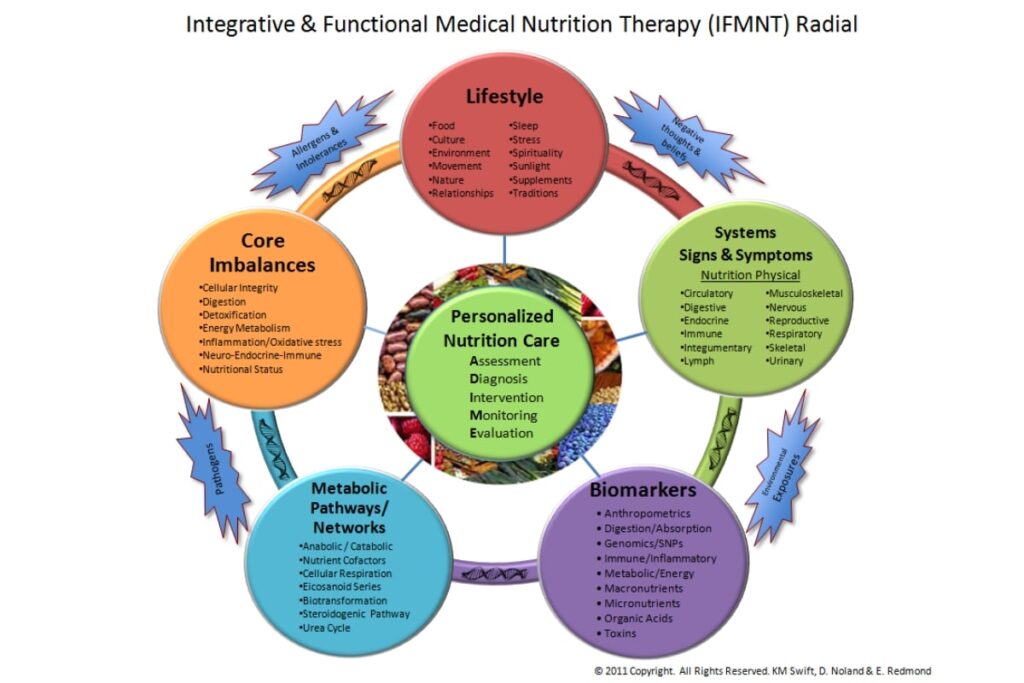What is functional nutrition? Answers from an RDN

Written and verified by Leah Tsui, RDN
What is functional nutrition and how does it differ from the conventional approach to nutrition? Leah Tsui, a registered dietitian nutritionist from Ciba Health, explains how functional medicine approaches nutrition and how we can benefit from thinking about nutrition in our everyday lives. Read on to find out!
What is nutrition?
Let’s start with the basics: nutrition is the study of nutrients in food, how the body uses them, and the relationship between diet, health, and disease.
What is a registered dietitian nutritionist?
According to the Academy of Nutrition and Dietetics, Registered dietitian nutritionists (RDNs) are the food and nutrition experts who can translate the science of nutrition into practical solutions for healthy living. RDNs use their nutrition knowledge to give evidence-based recommendations to help support individuals make positive lifestyle changes. RDNs who provide care with a functional medicine approach address the underlying causes of disease to support the patient towards their highest expression of health.

How does nutrition impact health?
We often hear the adage of “you are what you eat”—and while you don’t become an apple when you eat an apple, our food choices make an impact on our health. How we eat, what we eat, how we cook our food; all of this comes together to give a bigger picture on how nutrition is impacting health. With functional nutrition, there is the guidance of conventional (metabolic, cardiovascular, thyroid) and functional labs (nutrient levels, food allergy/sensitivity profiles, gastrointestinal function, oxidative stress markers, urine organic acids, hormone profiles, toxic metals, etc) to determine what is the best course of action for a patient.
How do functional RDNs work with patients?
Functional RDNs will evaluate many factors of what makes you, you! They want to understand your goals and priorities with coming to work with them, so that they know what to assess and can suggest appropriate intervention methods. Medical history, food intake (what you’re eating, frequency, portion sizes, cooking vs. takeout, how you’re eating, etc), medications, supplements, and culture are some important components of what is assessed during an initial consultation. There won’t be any “this is what you must eat” and “never eat that food again”; RDNs are not there to be the “food police”. They want to work with you to create a strategic plan that delivers lasting and sustainable results.
It’s more than just meal planning and counting calories, because functional RDNs look at the whole person rather than prescribe a particular diet to follow or macronutrient goal to hit. Functional nutrition takes an extremely personalized approach, taking lifestyle factors, culture, biomarkers, mental health, and more into account. The patient-centered approach, rather than the disease-centered approach, is what sets functional nutrition apart from conventional medicine. When health is viewed as a positive vitality, not just the absence of disease, this drives the direction of care towards the whole person.

Add more in! Here are some tips to add more to your life with nutrition:
- Add another serving of fruit per day
- Add another serving of vegetables per day
- Add one more glass of water each day
- Incorporate a protein into a snack to help keep you fuller, longer
- Add healthy fats to your meal (avocado, olive oil, walnuts, etc)
- Add more time to your lunch break so you can eat mindfully
- Add herbs and spices to your cooking to add flavor and promote benefits like anti-inflammation or improving brain health


